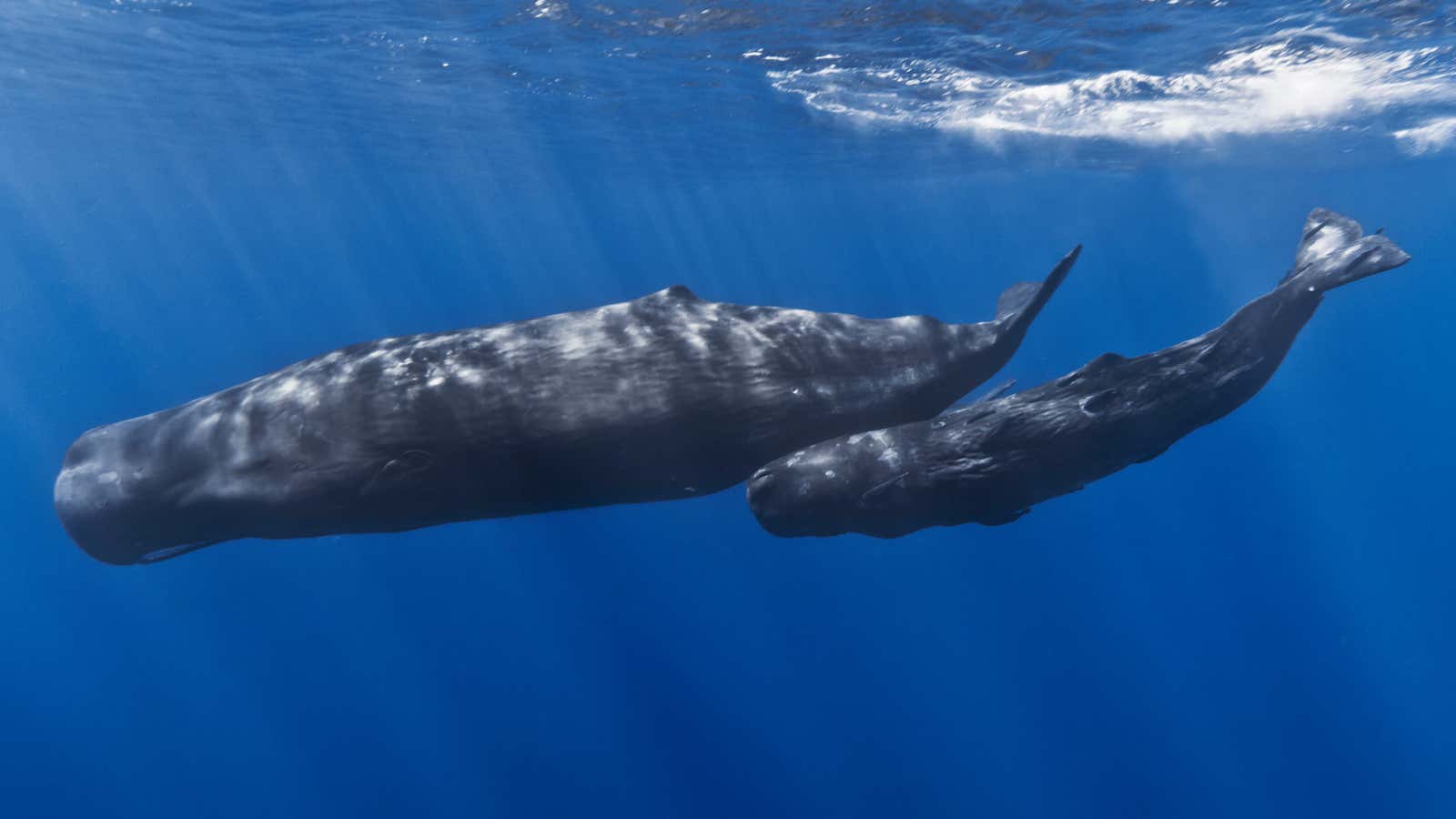The evolution of language helped humans develop culture and cooperation with others who helped us survive. We aren’t alone. Sperm whales form clans with distinct dialects and cultures in the Pacific and the Atlantic, and a new study introduces another clan in the Caribbean Sea.
The study, published in the journal Royal Society Open Science, profiles sperm whale clans in the Caribbean Sea and how their dialects keep whale cultures separate. Shane Gero, an author of the study, says this new clan means “there are multicultural areas in the Atlantic.”
Whale dialects are made up of a series of distinct click patterns called codas, and researchers can identify a clan by their click vocabulary using recording equipment. Within each vocal clan are social groups of female whales and calves that spend most of their time together. Males spend the majority of their time roaming the open ocean, but still communicate with members of their vocal clan when they encounter other whales.
Each clan has a signature set of clicks that announce their affiliation, and this signature is taught to each generation. Whale calves take two to three years to learn the family dialect, and they even babble, much like humans do in infancy.
In the Caribbean, whales use the “1+1+3” coda (a set of five clicks, with pauses, that’s a bit like Morse code) to notify other whales of their origin. In the Pacific Ocean, there are five known vocal clans, but with only one known clan in the Caribbean, researchers were left wondering why the whales bothered to announce their affiliation.
Their question was answered with some detailed analysis of 10 years of recording data collected by Gero’s team based on the island of Dominica. There are, in fact, two vocal clans in the Caribbean, giving the whales a good reason to broadcast their affiliation. The new clan is much smaller than the dominant clan in the region with only two known social groups and their vocalizations were much rarer in the recordings. The 1+1+3 coda, which is only found in the Caribbean, is rarely used by the newly discovered clan. They instead primarily use another coda called 5R3.
These clans, and their dialects, allow whales to share information and traditions that help them survive in the highly varied ocean environment. For example, said Gero, some clans in the Pacific tend to do better during El Niño years. Clan members can help each other hunt for squid in areas known for lots of prey, or members can help each other to avoid predators like orcas.
If one group of whales dies out, the cultural wisdom about a particular region dies out too. Gero likened the loss of these whale cultures to the loss of human heritage. “Culture, to them, is clearly important,” he said, and only trying to conserve sperm whales on a species level “doesn’t make sense.” Conservation efforts that take these distinct cultures into account will not only help sperm whales survive as a species, they will help clans survive in places no other group of sperm whales could.
